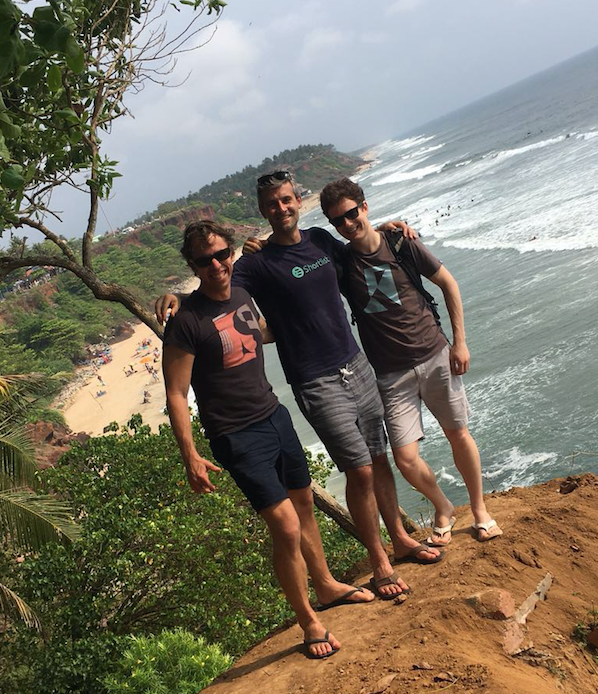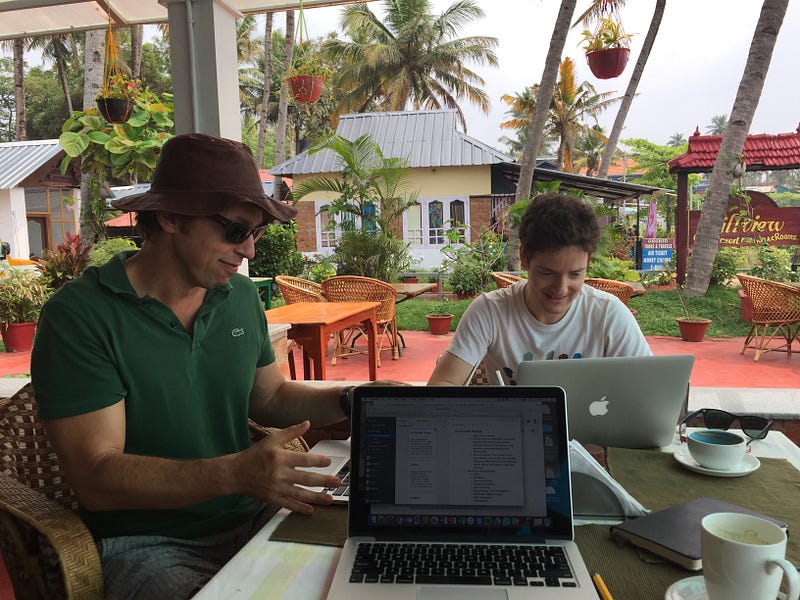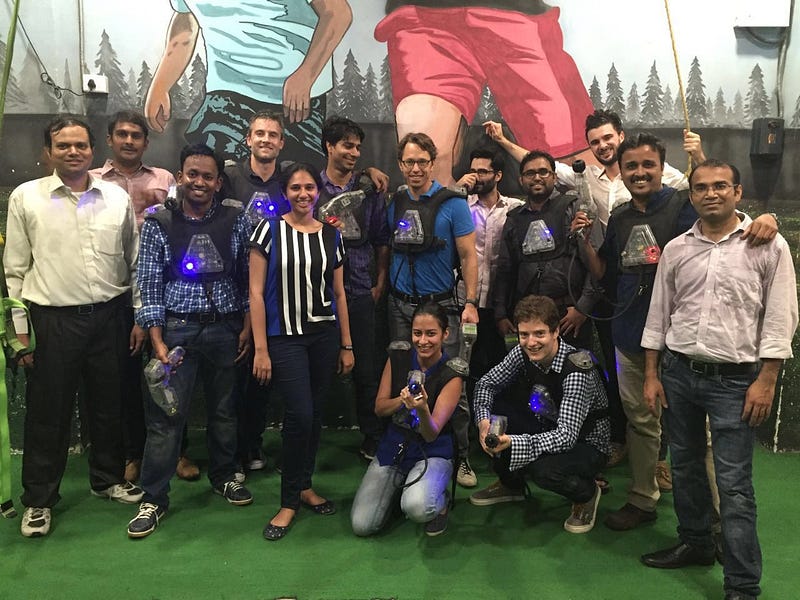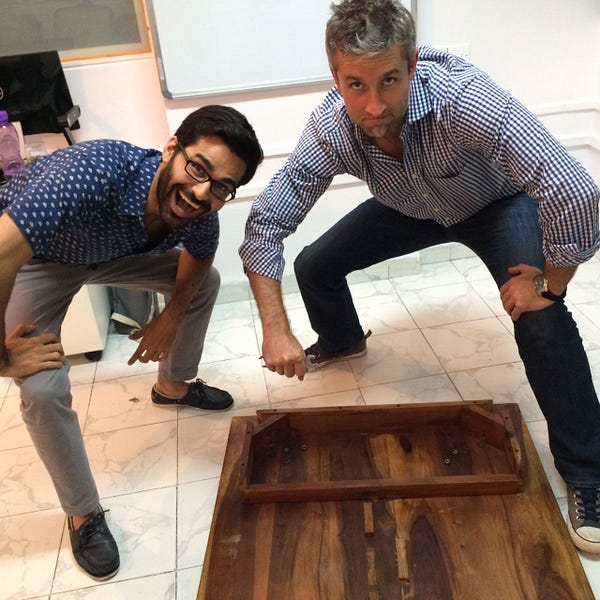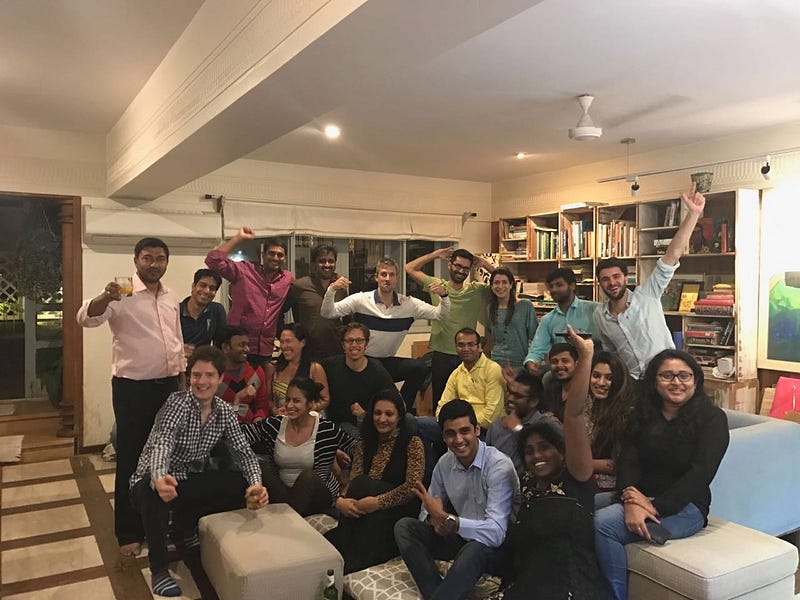Curious how applicants at Shortlist show us what they can do? Come take a tour of our assessments!
Hiring can be extremely time-consuming. A study we published last year showed that for a single mid-level hire, Kenyan SMEs are spending around 18 hours screening CVs, and then 19 additional hours interviewing candidates — almost a full week of work for each role! Thankfully, adding assessments into the mix as a bias-free screening tool can improve both the efficiency and predictiveness of any hiring process.
User-friendly assessments to increase the predictive quotient of hiring.
Our assessments are the “secret sauce” of our hiring platform. They help us screen thousands of potential candidates for the skills they need on the job — before the interview. We really care about empowering candidates before and throughout the assessment process. To ensure this, we use a combination of fun yet challenging questions that make candidates feel good, and informative messages so that candidates always feel prepared.
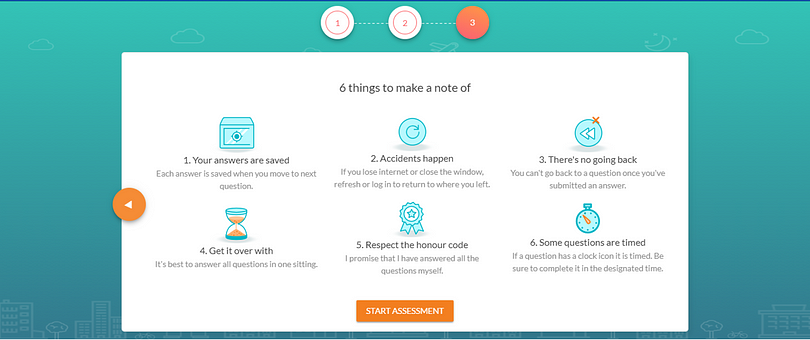
We help candidates know what to expect before they start the assessments
We aim to level the playing field for all candidates by allowing them to demonstrate potential beyond what’s on their resume.
Take a sneak peek into how our assessments work…
An approach backed by research
A famous meta-analysis over 80 years of research showed that in combination with an assessment of general mental ability (GMA), work sample tests and structured interviews are the most predictive of a candidate’s future performance on the job. Shortlist assessments typically contain a mix of questions on general mental ability and role-specific scenarios (i.e., “work sample tests”). But these aren’t your average case studies…
Predicting on-the-job performance
Our assessment library contains over one thousand questions. The questions are usually multiple choice, fill in the blank, or free text — depending on the competency we are trying to assess. Keeping the total assessment length for each application between 10–40 minutes helps us get an accurate view of the applicant’s strengths and weaknesses, while maximizing completion rates (i.e., making sure the applicants don’t abandon the process). Each question tests for on-the-job performance in one or more of the following ways:
- General Mental Ability: Questions that determine how well a candidate can process and apply information. For example, interpreting text, conducting mental math, or spotting errors in content.
- Functional Skills: Questions that require candidates to work through tasks they will have to perform on the job. For example, drawing conclusions from data, identifying appropriate sales channels, or designing operating processes.
- Domain Knowledge: Questions that gauge how well candidates understand the subject matter. For example, knowing Excel commands, coding in Java, or building financial models.
- Situational Judgement: Questions that test for how candidates will handle situations that may arise on the job. For example, meeting deadlines, prioritizing actions, or managing a team.
We also assess for ‘softer skills’ such as leadership, empathy, and learning ability through voice recorded questions, short phone interviews, and detailed structured interviews.
Most of the questions on our online platform look like this.
We try and keep the context universal and the question prompt straightforward:
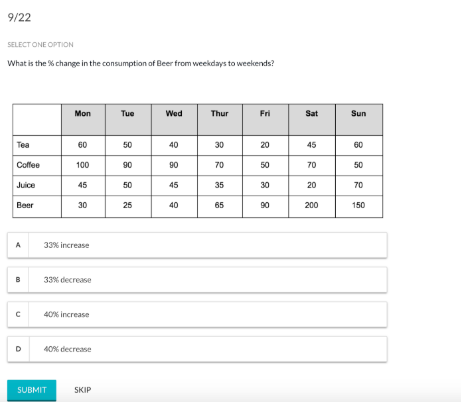
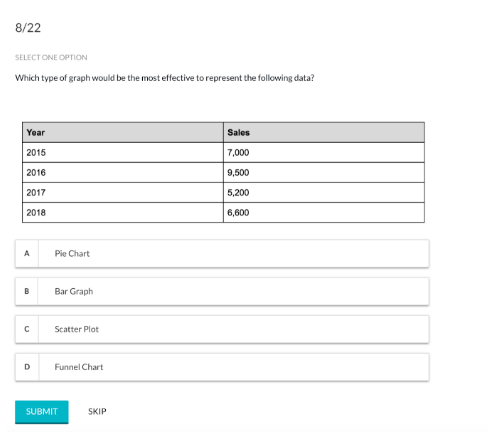
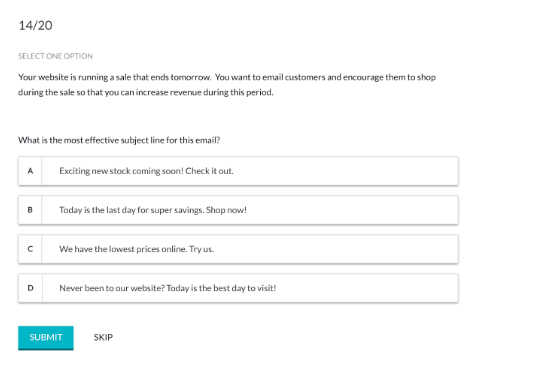
Creating world-class assessments that identify the best talent
To kickstart building our assessments, we underwent a competency-mapping exercise where we reviewed over 100,000 job descriptions of different role types across thousands of companies. This allowed us to identify the core competencies required to succeed in a few common functions such as sales, marketing, and finance. We then created a range of questions around each of these competencies with varying industry context and difficulty levels. We now use various combinations of these questions to create customized flows for each role that we hire for. Our assessment team, in collaboration with external experts, is continually adding questions for key competencies across several domains including finance, tech, and data science.
How do we know that our questions accurately predict job performance?
We try to be thorough with our internal and external validation and have even automated a few of our validation techniques. Internal validation involves checking for appropriate pass rates, conducting distractor analyses, and designing for a normal distribution on the scores. External validation involves correlating on-the-job performance scores of candidates we’ve placed with their assessment scores from the application.
No two jobs are the same — so your assessment flows shouldn’t be, either!
We begin each engagement with our clients with a consultation, which includes a job-task analysis to identify the key competencies required for a job. This informs the mix of questions we select from our library.
Assessments for a progressive global audience
We like to believe that we’re slowly eliminating bias from the hiring process through our job-relevant assessments. We make it a point to use egalitarian, current language in our assessments to change conventional mindsets about the workplace. For instance, we promote flatter organisation structures by using terms like “manager” and “colleagues” instead of “boss” and “report” and normalizing women in leadership positions by referring to a CEO as “she” instead of “he.”






